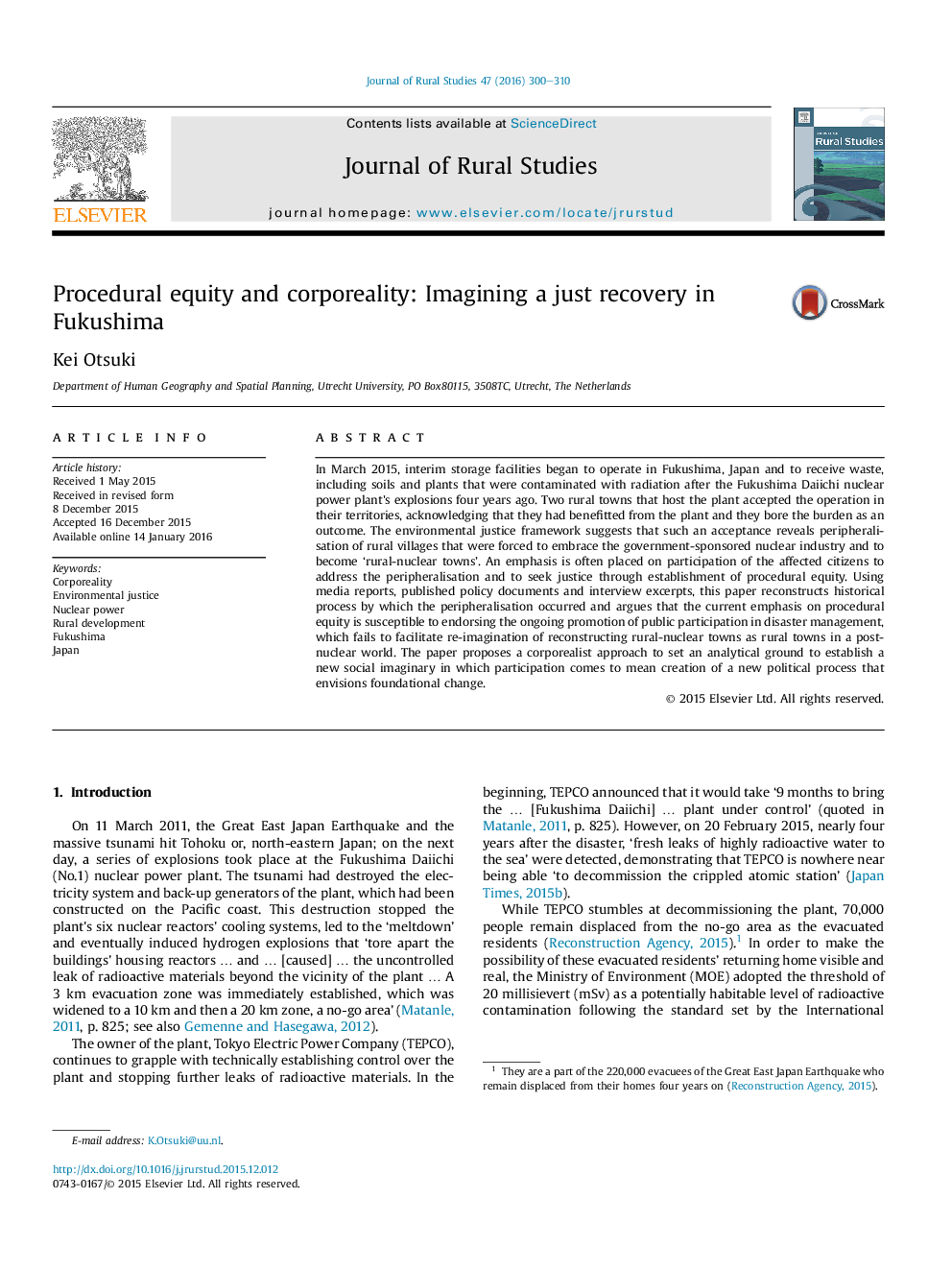| کد مقاله | کد نشریه | سال انتشار | مقاله انگلیسی | نسخه تمام متن |
|---|---|---|---|---|
| 6460203 | 1361825 | 2016 | 11 صفحه PDF | دانلود رایگان |
- Rural villages in Japan have been structurally coerced into the nuclear policy and peripheralised.
- Interim storage facilities (ISFs) to store radioactive materials symbolise peripheralisation.
- The current environmental justice framework focuses on procedural inequity through participation.
- The participation does not fully address the need for foundational change to overturn peripheralisation.
- A corporealist approach is useful to envision the foundational change.
In March 2015, interim storage facilities began to operate in Fukushima, Japan and to receive waste, including soils and plants that were contaminated with radiation after the Fukushima Daiichi nuclear power plant's explosions four years ago. Two rural towns that host the plant accepted the operation in their territories, acknowledging that they had benefitted from the plant and they bore the burden as an outcome. The environmental justice framework suggests that such an acceptance reveals peripheralisation of rural villages that were forced to embrace the government-sponsored nuclear industry and to become 'rural-nuclear towns'. An emphasis is often placed on participation of the affected citizens to address the peripheralisation and to seek justice through establishment of procedural equity. Using media reports, published policy documents and interview excerpts, this paper reconstructs historical process by which the peripheralisation occurred and argues that the current emphasis on procedural equity is susceptible to endorsing the ongoing promotion of public participation in disaster management, which fails to facilitate re-imagination of reconstructing rural-nuclear towns as rural towns in a post-nuclear world. The paper proposes a corporealist approach to set an analytical ground to establish a new social imaginary in which participation comes to mean creation of a new political process that envisions foundational change.
Journal: Journal of Rural Studies - Volume 47, Part A, October 2016, Pages 300-310
